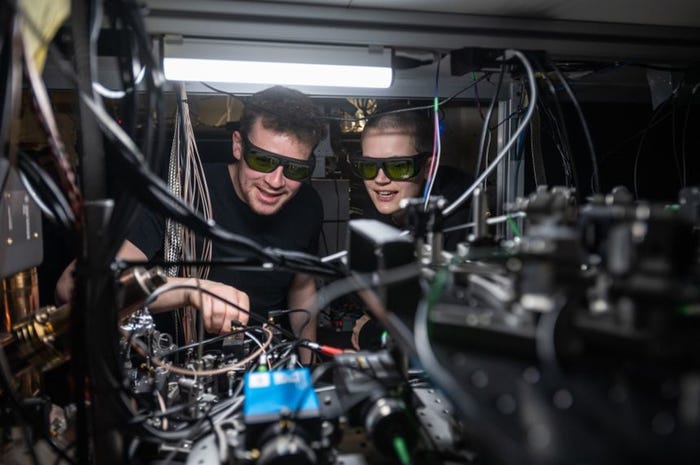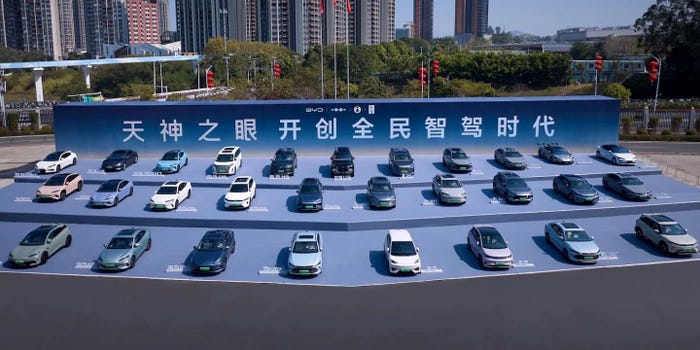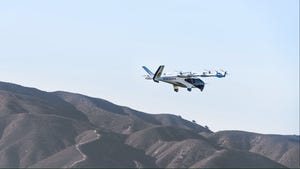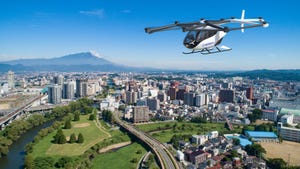Air Taxi Company Applies to Operate in UAEAir Taxi Company Applies to Operate in UAE
Earlier this year, Joby signed an agreement with Dubai’s Road and Transport Authority to launch air taxi services in Dubai
.jpg?width=1280&auto=webp&quality=95&format=jpg&disable=upscale)
Flying taxi company Joby Aviation has applied to become the first certified air taxi operator in the United Arab Emirates.
Joby presented a letter of intent to initiate the electric aerial vehicle (EAV) maker Air Operator Certificate application.
Earlier this year, Joby signed an agreement with Dubai’s Road and Transport Authority (RTA) to launch air taxi services in Dubai.
Joby already has a partnership with the UAE through a memorandum of understanding with the Department of Municipalities and Transport Abu Dhabi, the Abu Dhabi Department of Economic Development and the Department of Culture and Tourism, setting Joby up to establish and scale flying taxi services in Abu Dhabi and beyond.
“There is incredible momentum behind the adoption of clean flight across the UAE, and we’re excited to be working with a wide range of partners, including the GCAA, to lay the groundwork for one of the world’s first electric air taxi networks, delivering fast, clean and quiet journeys using our revolutionary aircraft,” said Joby founder and CEO JoeBen Bevirt.
The air operator certificate from the UAE General Civil Aviation Authority (GCAA) is needed to operate commercial air transportation services in the UAE, much like the Part 135 Air Carrier Certificate required by the Federal Aviation Administration (FAA) in the U.S.
The electric Joby flying taxi is designed to carry a pilot and four passengers and travel up to 200 mph. The company plans to operate its EAVs in New York City and Los Angeles along with its partner Delta Air Lines.
In the UAE, a trip from Dubai International Airport to Palm Jumeirah, typically a 45-minute drive, is expected to take 10 minutes by EAV.
Joby recently filed for its EAV to be certified to be operated in Australia.
Joby also filed to have its certificate from the FAA validated by regulators at the Japan Civil Aviation Bureau and the United Kingdom’s Civil Aviation Authority once it receives it.
The Australia request follows a bilateral agreement between the FAA and Australia’s Civil Aviation Safety Authority (CASA).
Joby is at the third of five stages of the type certification process, which takes years and involves elaborate testing and documentation to meet stringent regulations.
For more flying vehicle and other embedded tech news subscribe to our free newsletter!
Joby, which has raised more than $2 billion from investors including Toyota, Delta Air Lines, SK Telecom and Uber, has logged more than 33,00 miles of all-electric flight with a full-scale prototype, according to the company.
Joby also has flown its eVTOL (electric vertical takeoff and landing) hydrogen-electric air taxi 523 miles in California, a prototype battery-electric flying vehicle with a liquid hydrogen fuel tank and fuel cell system.
The EAV carried 88 pounds of liquid hydrogen and a reduced mass of batteries for added power for takeoff and landing.
The system, with hydrogen fed into a fuel cell system, was designed by H2FLY, a German subsidiary of Joby.
Joby recently received FAA approval to use its ElevateOS system, which includes a mobile-first rider app, pilot tools, operations and schedule management software and an intelligent matching engine.
Joby acquired the Uber Elevation air taxi division of Uber in 2021 and has been developing and testing the software tools since then.
Archer Aviation, the other major air taxi company, has an agreement to collaborate on future autonomous flight with Wisk Aero. Last year, Boeing invested $450 million in Wisk and later acquired the startup, making it a Boeing subsidiary.
While Joby is partnered with Delta, Archer has a partnership with United Airlines.
EHang in China already is flying two-passenger, flying vehicles without on-board pilots.
Joby has been working with the U.S. Air Force and delivered one of its eVTOL vehicles to MacDill Air Force Base in Tampa, Florida, following one delivered to Edwards Air Force Base in California last year.
Joby has a $163 million contract with the DOD AFWERX Agility Prime program and has been working with the DoD since 2016.
Joby recently demonstrated autonomous logistic flying operations at the U.S. Air Force Agile 24-3 exercise, where Joby operated a fully autonomous Cessna 208B Grand Caravan plane for nearly 4,000 miles of flight between military bases across California and Nevada.
The Joby team included the autonomy division of Xwing, which Joby acquired earlier this year.
A major advantage of the Xwing deal is the added relationships with the U.S. Department of Defense (DOD) since the U.S. military has been active in exploring the electric aerial revolution.
In what was described as a dynamic operational environment, the self-flying Cessna moved among nine different locations to restore the operational readiness for various Air Force assets.
Xwing earlier this year participated in a similar exercise, completing nearly 3,000 miles of autonomous flights in congested airspace in night operations, sloped runways and at airports with no infrastructure.
Read more about:
Flying CarsAbout the Author
You May Also Like








